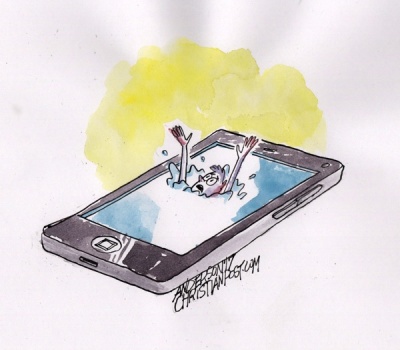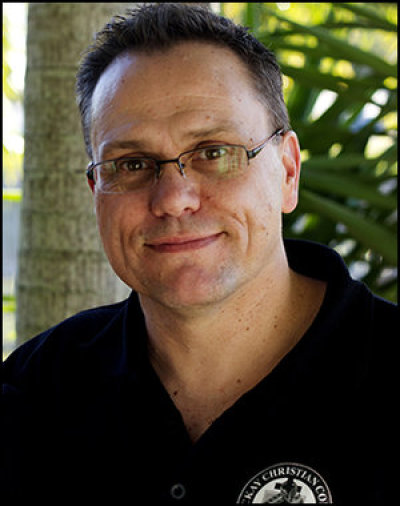Digital Addiction, Sexualized Culture Driving Rising Teen Suicide Rates; Fight Is 'Spiritual Battle,' Some Say

Technology and a sexualized culture are driving rising suicide rates among teenagers, according to a prominent Internet safety activist and an author who focuses his ministry on equipping families about technology dangers. And this is a battle that is first and foremost a spiritual fight, they note.
A recent CDC report reveals that suicide among teen girls has reached a 40-year high, having doubled in the past 10 years, and in that same time frame the rate has risen 30 percent among teen boys.
In 2015, 524 females ages 15 to 19 and 1,537 males in that same age range ended their lives in the United States, the analysis shows.
Donna Rice Hughes, president of Internet safety advocacy group Enough is Enough, said in a phone interview Tuesday with The Christian Post that the dramatic increase is very sad but not particularly surprising given how "our culture has set up a perfect storm for the emotional, sexual, and mental and relational brokenness of our young people."

"It's a toxic mix everywhere you look," she said, noting how many kids are living in broken homes, the "pornification" of society, and the sexual demands on teens and pre-teen girls.
"Also, you add the culture of meanness. This is 'Mean Girls' on steroids because of cyberbullying."
Hughes mentioned that nearly every young girl that has come across her path in the past 15 years has dealt with some kind of eating disorder. Eating disorders were virtually unheard of when she was growing up, she noted.
"Unless researchers start doing studies with those who have attempted suicide and actual suicide to find out what is really going on in their lives — instead of just saying anxiety or depression — well, anxiety caused by what? Depression caused by what?"
When she speaks with parents she always emphasizes that relationships are of the utmost importance.
"The greater the incidents of regular ongoing conversations and dialogue and relationship with a concerned parent the risk factors go down," she said, "and God gave kids parents to be parents, to be stewards of their innocence, to be a steward of their safety and to help them deal with life's pressures."
"Parents have also got to understand that no matter how smart, how bright, or how well-adjusted their kids appear to be, there are so many silent things going on in the hearts and the minds of these kids that a parent may never even recognize unless they are looking for it," she said, pointing out how kids are good at concealing things from their parents.

And they need to be reminded that this is a spiritual war, she added.
"Prayer is absolutely key. A lot of people think that prayer is the last resort. Prayer is the work, the first work. And I would say to any parent to be constantly praying over their children, constantly blessing them, constantly affirming them. And ask the Holy Spirit for insight because you're not going to be able to get it all on your own."
Brad Huddleston, a bi-vocational Pentecostal evangelist who ministers globally and now spends much of his time equipping churches, schools, and ministries about how technology addiction warps young people spiritually said in a CP interview Tuesday that such statistics reveal just how evident "that the enemy of our souls is ramping up his efforts to kill, steal and destroy Generation Z."
Huddleston, who is also the author of Digital Cocaine, noted that "when teenagers have a lethal cocktail of a home in chaos, abuse, and are constantly hyper-stimulating their brains with technology, they gradually lose feelings of pleasure."
"In an effort to continue feeling pleasure, they have to resort to increasing amounts of screen time in order to generate larger and larger amounts of dopamine," he said of its effects on the brain.
"Eventually, this becomes almost impossible and numbness sets in. Once numbness sets in, the person cannot even sense and enjoy God's presence through His Word, praise and worship, and face to face social activities."
Thanks to neuroscience studies, he continued, "we now know that a hyper-stimulated pre-frontal cortex — digital addiction in the brain — can reset in approximately six weeks."
Whenever he advises parents to do a six-week fast from all technology he often sees panicked expressions on their faces.
"But think about it. Anger, depression, anhedonia, anxiety disorders, and a host of other negative issues gone. The sweet personality of your child returning. When you put it like that, is six weeks really that long? Not all disorders will go away but at least the ones created by the overuse and misuse and overuse of technology will subside," he maintained.
And this is advice not just for teenagers, he added.
"I can't stress enough how important it is that the entire family detox together. Remember, with your children, you cannot say, 'Do as I say, not as I do.' You must lead by example."
Since the beginning of the 21st century, suicide rates have risen across the board for every age, according to Tom Simon, one of the report's authors and an associate director for science in the division of violence protection at the CDC, as US News & World Report noted earlier this month. Between 1999 and 2014 overall suicide rates rose by 24 percent, a National Center for Health Statistics data brief from last year showed.



























